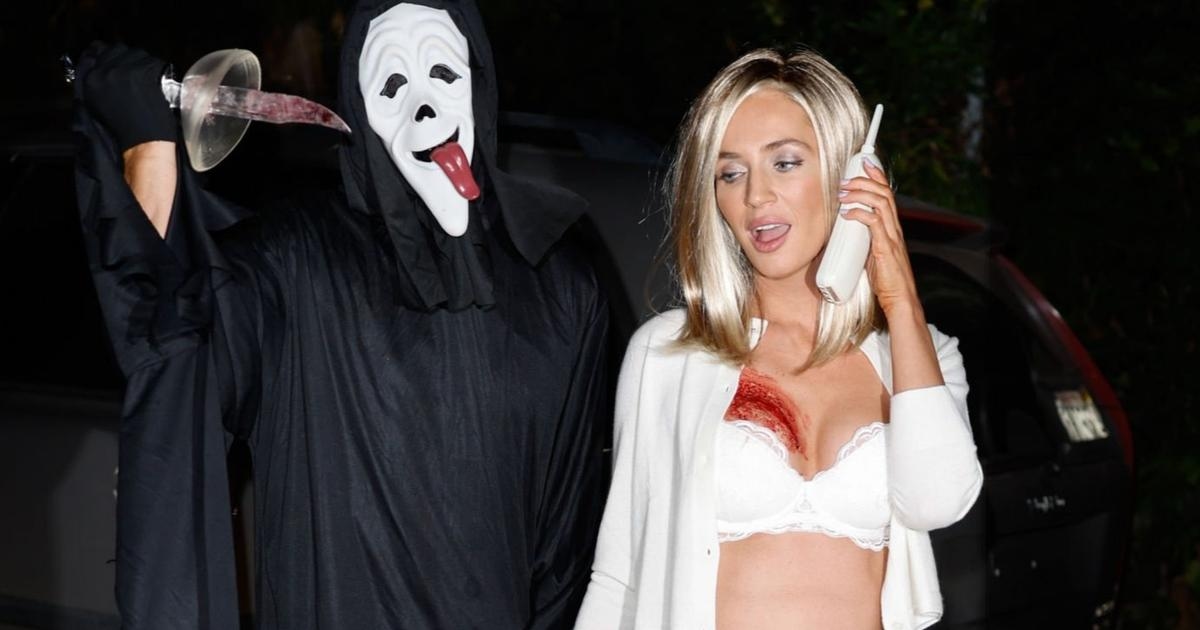Halloween and the French, those killjoys who don't like to dress up

They claim not to want to endorse "the" emblematic celebration of American cultural imperialism, but when it comes to dressing up for a party, it's always the same with them. Is it fear of ridicule or a sense of seriousness?
Jane, a 39-year-old New Yorker who has been living in Paris for a few months, is exasperated: “ I tried to convince all my French friends to organize a Halloween party this year, but they all declined! Some told me they were uncomfortable with the idea of dressing up, others didn't have time to look for an outfit, some even told me that there was no way they were going to give any credence to this American holiday , which is therefore inherently commercial… As if they couldn't have fun and let loose without seeing it as a threat to their cultural identity! ” While Jane has nothing against each country preserving its traditions, she criticizes her friends for invoking “the marketing dictates of the times ,” to better conceal, deep down, a certain intellectual rigidity and a lack of self-deprecation.
After spending several years in the United States, Romain, 40, also tried to introduce the concept to his friends in Lyon: “ Last October 31st, I ‘sold’ them a costume raclette party without even mentioning Halloween. They all arrived well-dressed but absolutely not in costume! Most claimed to have forgotten or not understood. As I grumbled, my best friend told me he was dressed as The Great Gatsby because he'd pulled a threadbare black jacket out of the closet. Clearly, he hadn't read Fitzgerald in a long time. In the end, we had a good laugh, and I was the star of the evening dressed as Trump, my face covered in orange foundation , wearing my MAGA cap and my baggy suit. I know that deep down, they regret not letting loose more. But they're so French... ”
Also read “Shrink it, Pink it”: why women’s running shoes are still designed for men
Skip the adYet, our compatriots haven't always been averse to dressing up. Even without going back to the court of Versailles , where cross-dressing was subject to the utmost refinement, the tradition of costume balls continued throughout the 20th century, from the first oriental-themed ball majestically orchestrated by Paul Poiret in 1911 , to the Ball of the Century staged in Venice by Charles de Bestegui in 1951, or even the Proust Ball of 1971 with its Belle Époque gowns created by Yves Saint Laurent. The most elegant women in France, Jacqueline de Ribes and Marie-Hélène de Rothschild foremost among them, displayed remarkable creativity, audacity, and humor when it came to appearing at these social events. The trendsetters of the 1970s took over in the most exclusive clubs, such as Les Bains or Le Palace, whose wild parties attracted all of Paris. In the 1980s, the provincial bourgeoisie still let loose in their luxurious apartments, dressed as 18th - century marquises or Robin Hoods (see the cult scene in Sautet's Quelques jours avec moi , 1988).
But against the backdrop of the Gulf War, the 1990s signaled the end of the party... and of dressing up, now relegated to popular festivals, bachelor parties, and the Médoc Marathon. The extravagant rich of yesterday gave way to a global elite, dressed in designer labels and frequenting contemporary art parties. And more broadly, it's the majority of French people who hate to stand out in a society where appearance and behavior are extremely codified—a legacy of Versailles, once again. While Americans like to play with their appearance, we, dressed in navy blue and safe bets, like sartorial Protestants, are held back by a fear of ridicule...
Martial, 43, readily admits to being French when it comes to dressing up: “ I find there’s something a bit decadent, like something out of Eyes Wide Shut , or even corny and forced about these parties. I have to confess that two years ago, a close friend invited me to his 1970s-themed birthday party. I happened to be traveling at the time, but it definitely created a tense atmosphere between us … I can’t help it ; I feel like I’d lose my dignity. And to be honest, I have a hard time feeling cool in a costume. ” Perhaps because the obsession with being cool veers into seriousness, while, paradoxically, a recent study by the American Psychological Association shows that people perceived as “cool” are generally extroverted, hedonistic, powerful, adventurous, and open-minded…
lefigaro





